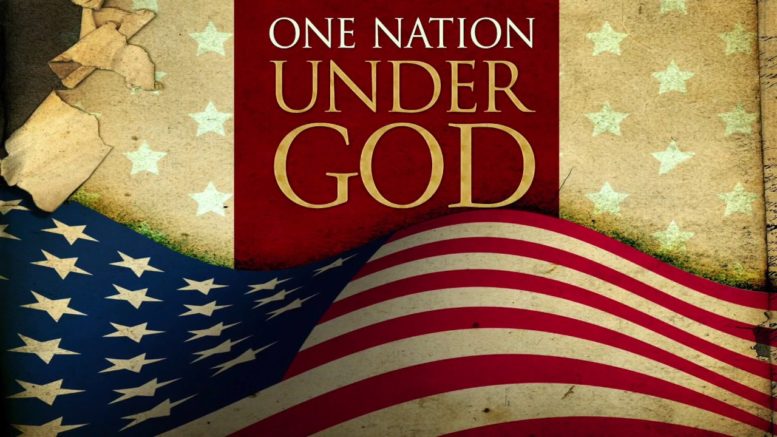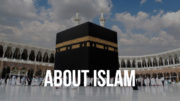A friend recently sent me a link to a blog article titled This is Worth Reading. I don’t know the person who wrote it, but that doesn’t matter. The post lays out a reasonable line of thought expressed by many liberals today. It also deserves a reasoned response. I’ll attempt to provide one in my own small way, addressed to the original author, whoever it is. While addressed to them, it is not about them. Rather, it is about the ideas they appear to hold.
Most, if not all, your points have to do with morality. On that we can agree. No one I know wants people to be uncared for; whether it is healthcare, education, the ability to earn a living, etc. Morality matters, in both a people and its individuals. The real question comes down to how do we get there? That is where we differ, so that is where I’ll focus.
- Your points largely center on achieving specific ends (goals). That’s fine, but incomplete. I believe the means used to achieve those ends matters just as much, if not more, and those both begin with ideas. Ideas influence what we consider, the choices we make, and the actions we take. They shape our character, who we choose to become. But it all begins with the ideas we each decide to hold, what we accept as true.
- Since the issue is morality, what is it and why does it matter? Morality is the quality of being upright, righteous. In a word virtuous—that is, good. There is only one source of morality, and that is God. He created everything ever created, it all belongs to Him. His act of creation is evidence of His goodness, because to be is better than not to be. But He didn’t stop there. God created creation for Man, it contains all we need to not just exist, but also fulfill our purpose. Finally, God gave Man dominion over His creation. Man received the gift of creation and at the same time incurred the moral duty of stewardship, because creation does not belong to Man.
- You may not believe in God or that He created creation. That is one’s choice. But consider no one has ever come up with any consistent theory of creation or manner of living that works without Him. It comes down to faith. Every person has faith, it just comes down to whether that faith is placed in Man or God. When man cuts himself loose from a personal/infinite God, he faces a dilemma. How does he account for his existence, morality, or knowledge (his ability to reason)? Man is not infinite and is therefore insufficient for any of these things on his own. He requires something greater than himself. That comes from God. God is necessary.
- You outline several rights, but what is a right? A right is that which can be claimed on just or moral grounds. It springs from righteousness and is based in virtue. We’ve received rights (natural rights) from God in the areas of our being, actions, and dominion. These are almost exclusively negative, meaning they tell us the few things we are not to do. The rest is up to us.
Human rights, such as those you articulated for healthcare and education, tell us about something specific we are to do or benefit we are to receive. Human rights are almost always positive. These types of rights have nothing to do with good or bad, but rather force or power. Negative rights repel us from evil; positive rights attract us to something specific.
- Societies based on negative rights, such as America, require a moral people to exercise individual moral decision making. Those individual actions shape society by creating rules—shared behaviors, customs, common practices, etc. Such societies maximize freedom, but this freedom is to be directed to a specific end—to do good. Being a people requires recognizing a single set of rights and shared commitment to the common good.
Societies based upon positive human rights require obedience. Law orders society, and a legislative body creates law. Freedom becomes license to do what one wants, as long as it is not forbidden by law. God’s timeless values no longer define morality, but rather Man’s worldly ones. Change the law, you change morality. Man becomes driven by his appetite (what he wants) rather than his reason. Such societies put self-interest above self-sacrifice. Therefore you need laws and regulations to control almost every aspect of society, a self-fulfilling prophecy. It begins with the ideas you select.
- The preceding has implications for justice. Justice has to do with receiving what one is due, what we’ve earned through our actions. In negative rights societies, individual decision making orders society through the customs, standards, and common practices it develops. Society creates law only when an unjust outcome occurs, or to punish when someone chooses to violate one of society’s rules. There is a negative test for justice; society realizes justice by finding and removing injustice. Lawmakers are stewards of society’s rules, because the power comes from the people.
Law orders positive rights societies. There is no test for justice in such societies. Instead justice is defined by what the law says is just. Lawmakers decide what is just. Power comes from the state through legislation; the people exist to serve its state. All are not created equal, rather some are more equal than others—all defined by human law.
- The above has nothing to do with religion per se, but everything to do with the ideas and principles derived from it. That said, without God moral societal outcomes become rare and do not last; we each choose whom we serve through His gift of free will—freedom. Consider our society over the last hundred years has removed God from almost every place He should be; schools, government, the public square, and even some churches. We just see the fruit of those actions today. Want a better outcome? Choose a better idea.
- God’s values are timeless. They do not change as God stands outside of time. He spoke one time for all time. Man’s values are worldly—changeable. Witness today’s liberal stances on abortion, marriage, and gender. Those views are not new; they are not even modern. Pagan societies such as Rome, Greece, Babylonia, Egypt, held similar ideas. Their roots can be found in Greek philosophy rather than the Bible.
- We’ve now covered the relevant ideas, so back to morality. It comes down to how should the less fortunate be cared for? How do we provide for others—in a word, charity. Charity is the funding or aiding of those in need in a way which builds virtue in both the giver and receiver. They are actions beginning in faith, done in virtue, taken voluntarily (with freedom), out of love for another simply because we share the same nature. This is agape, and the responsibility of each of us; we cannot achieve it by any government program. It also cannot come solely from the church, although it should be able to help through the guidance it is to give society.
Christ did not give His Sermon on the Mount to the Roman governor, the Israelite king, nor the Jewish Sanhedrin. He gave it to us; it is our responsibility. Early in America those who had gave back by creating hospitals, schools, libraries, and other such places benefiting society. Somewhere along the way we got the false notion this could be done by government. It cannot.
Consider the average government program only delivers $.25-.30 in service benefits for each dollar it takes in. Charities, on the other hand, on average deliver about $ .75 in service benefits per dollar. Which is good stewardship?
- It is not a matter of wealth, but what one does with it. Early in the last century the typical difference between those making the most and least within an organization was usually no more than 10 or 20 times. Today it is considerably more than that. In some organizations, it may well be over a hundred times. It is not coincidental that liberal (progressive) notions really began to take hold with the Wilson and FDR administrations about a hundred years ago. Change society’s basis, and you change its outcomes.
- Christ separated the spheres of religious and political power, and each has distinct areas in serving society. Religious to teach what it means to live morally; political to enact justice when someone fails to act morally. Modern liberalism seeks to put these back together, as they existed in the early pagan societies. We can find these notions in Rousseau’s (and many others) writing. “In [Christ] separating the theological system from the political system, this made the state cease being united and caused internal divisions that have never ceased to agitate Christian peoples.”[1] It also led to Rousseau’s corruption of the golden rule. “Do what is good for you with as little harm as possible to others.”[2] These are not my words, but the fruit of someone who strongly believed in modern liberalism’s underlying ideas. You support an idea; you own its outcome.
One brief example before closing. I’ll use life. It is a natural right coming from God. It is not correct to say we have the right to life, rather we have received the gift of life from our Creator and no man has the right to take it away. That is why abortion is wrong. It is the taking of an innocent human life, and biologists generally agree that life begins at conception. It is also why we have the duty to defend ourselves, our family, and our neighbors—and yes, that can include choosing guns. We incur the moral duty when we accept the gift. Finally, when someone deliberately takes another’s life, justice requires they make a similar sacrifice. It isn’t good, but it is just and due to the perpetrator’s immoral action. They predestined themselves through their own choice, just as we ultimately all do.
I think that about covers the main points. The bottom line is, if you need a label, call me a constitutionalist because I believe in the principles underlying our Declaration of Independence and Constitution. They provide the best hope for man to fulfill his purpose and create a successful (good) society. These values are timeless, they do not change. It is a matter of whether Man accepts them or not. History shows not accepting them generally does not last long nor end well. While we often don’t live up to them, what matters is we try. We come closer to hitting the center of the target when we strive to reach it, even if it is never truly attained in this world.
Asking me to accept other principles or values is not right, and I cannot comply. Man must obey God rather than Man when man chooses immorality. “[O]ur rulers can have authority over such natural rights only as we have submitted to them. The rights of conscience we never submitted, we could not submit. We are answerable for them to our God. The legitimate powers of government extend to such acts only as are injurious to others.”[3] Those are not my words either. They are Thomas Jefferson’s.
Footnotes:
[1] Rousseau, Jean-Jacques, The Basic Political Writings, p. 244, Hackett Publishing Company, Inc., 2011.
[2] Ibid, p. 64.
[3] Jefferson, Thomas, Notes on the State of Virginia, p. 265, London, 1787. http://books.google.com/books/about/Notes_on_the_State_of_Virginia.html





